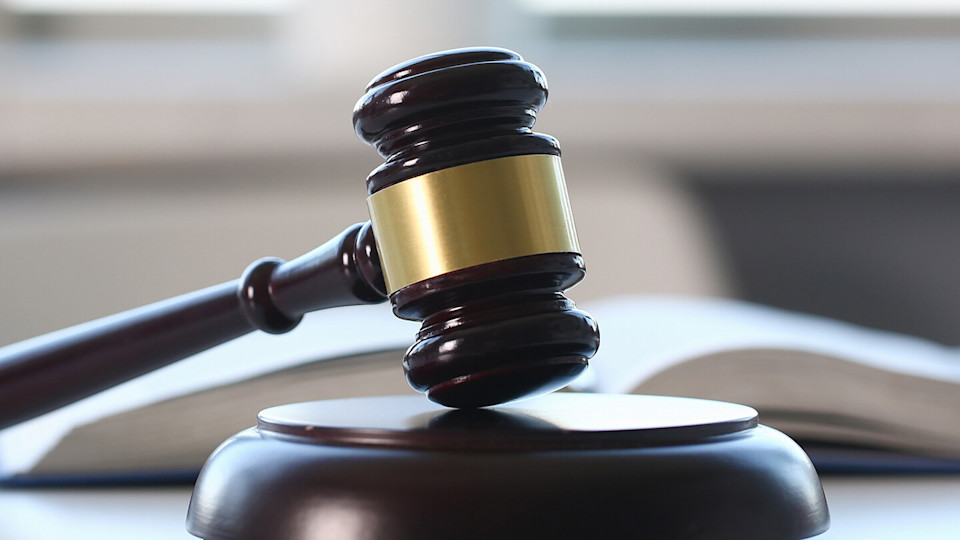
General
What’s the difference between criminal and civil law?
Broadly speaking, criminal law enables the state to deter and punish crime, while civil law allows individuals or businesses to seek financial compensation or damages. However, there’s a lot more to understanding the difference, as we explain in this brief guide to civil law vs criminal law.
Criminal vs. civil law: What are the differences?
When you think about the law, you might not immediately be aware that two different legal systems operate in the UK; criminal and civil. Understanding how each of these are applied and in what situations can be difficult, but there are important distinctions between the two.
In this article, we explore what criminal law and civil law means, when each will apply, and what the penalties for breaking these laws could be.
What constitutes criminal law?
Criminal law essentially relates to offences and breaches that negatively affect society, as opposed to just one person. This area of the law is defined by what Acts of Parliament deem to be acceptable or unacceptable conduct in the UK. There are also a range of offences that can be committed by a British citizen abroad, but then prosecuted under British law in England and Wales.
If a person breaches criminal law, they’re subject to criminal prosecution by the state. Criminal proceedings will usually be brought by the Crown Prosecution Service (CPS) in the name of the Crown and will be heard in a Magistrates’ Court or the Crown Court. Parties who have a specific interest such as the RSPCA, Environment Agency or HMRC may also pursue Private Prosecutions for criminal matters.
Examples of offences that breach criminal law include but are not limited to:
- Burglary, theft, arson and criminal damage
- Assault, sexual assault and battery
- Murder and manslaughter
- Fraud, money laundering and drug dealing
If convicted, the offender will receive the penalty laid out in the relevant legislation and sentencing guidelines, usually in the form of fines, prison sentences or community orders. In order to be found guilty of a criminal offence, the person must be proven guilty beyond reasonable doubt. It’s an important principle of UK law that everyone’s considered to be innocent unless proven guilty.
What does civil law cover?
Civil law is quite different from criminal law. It’s concerned with the rights and property of individual people or organisations, which may not always be protected by criminal laws. Civil law settles disputes between individuals and organisations and it often involves compensation being awarded. No one is sent to prison in a civil case, but they may be left out of pocket if they’re found liable to pay compensation.
Examples of civil law cases include:
- Family disputes such as divorce, dissolution of civil partnerships, children’s issues and child arrangements
- Personal injury cases, such as road traffic accidents, medical and clinical negligence and slips, trips and falls
- Breach of contract or promise, such as cases where money owed is unpaid or a contract hasn’t been honoured
- Employment law, for example where an employee suffers discrimination or unfair dismissal in the workplace
Civil law cases often hinge on establishing whether or not the accused person or organisation, legally known as the defendant, had a duty of care towards the claimant. For example, an employer has a duty of care towards their employees.
Therefore, if an employee is injured at work, a personal injury solicitor will seek to prove that the employer breached their duty of care and that this breach caused the injury to the claimant.
What is the fundamental difference between criminal and civil law?
Criminal law seeks to punish for an offence. Civil law seeks to achieve a remedy such as compensation for the injured party. Other important distinctions include:
- By handing out a punishment or penalty, criminal law aims to deter offenders and others in society from offending
- Criminal law has the ultimate aim of maintaining the stability of the state and society
- Civil law aims to deal with disputes between individuals or organisations
- Civil law cases generally involve compensation or an agreement or judgement relating to finances
- Civil law cases are filed by private parties, while criminal cases are usually filed by the state
- The decision of the court in a criminal case is guilty or not guilty. In a civil court, it is liable or not liable
- The outcome of civil cases where one party is found liable is usually the awarding of compensation, while for criminal cases, a guilty verdict means conviction and punishment in the form of a custodial sentence, fine or community service
- When it comes to appeals, either party can appeal in a civil case. In a criminal case, only the defendant can appeal the decision of the court
Can a person face both criminal and civil action for a crime?
Yes, it happens quite frequently. The CPS will prosecute a person in a criminal case; at the same time, a wronged person, such as the victim of an assault, may choose to bring a civil action against that person too. It’s possible for the person to be acquitted in the criminal court, where the burden of proof is greater, but still lose the civil case and be ordered to pay damages or compensation to the injured party.
How Slater and Gordon can help
Many people have some understanding of the criminal legal system, whether from television and the media or education, but civil law can often seem incredibly daunting if you’re thinking about pursuing a claim.
It may be the first time you’ve ever directly encountered civil law in action, and the process can be confusing. It is important in these situations to have the support of expert solicitors you can rely on.
Slater and Gordon is one of the UK’s largest consumer law firms, supporting thousands of clients each year to secure the justice and support they deserve when faced with some of life’s toughest challenges. Whether you’re looking for a personal injury solicitor, help with family issues, or are struggling with challenges at work, our award-winning solicitors are here to provide the expert legal assistance you need to move forward.
Speak to us today on 0330 041 5869 or contact us online to arrange a call back.



